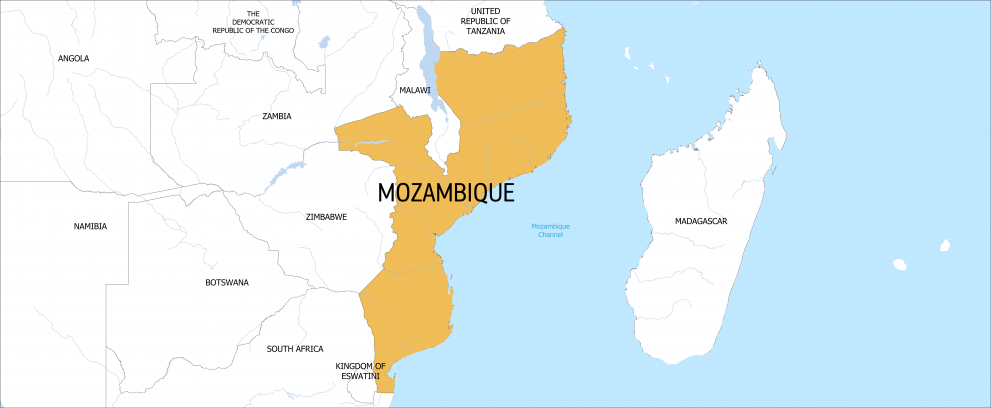Introduction
The security situation in Cabo Delgado, Northern Mozambique, deteriorated in 2024, and remains highly volatile, with close to 1.2 million internally displaced people between (IDPs) and returnees.
Civilians continue to bear the brunt of the armed violence: conflict-affected populations are suffering from a lack of access to basic services and are facing numerous protection risks.
Moreover, natural multi-hazard events, including the El Nino phenomenon, have detrimental effects on food security and the livelihoods of the population
What are the needs?
After an improvement of the security situation in 2023 with better road access and a significant number of returns among internally displaced persons to areas previously affected by active conflict, the security situation in Cabo Delgado quickly deteriorated in 2024.

Humanitarian needs are huge, while the crisis continues to be underfunded. In Northern Mozambique, some 1.7 million people require protection, food assistance, nutrition services, health, education, water and sanitation, and shelter. Over 3 million people are currently facing severe food insecurity (IPC3+).
Climate change has increased the recurrence and intensity of natural hazards, including floods, cyclones, and drought. Furthermore, El Nino for 2023-2024 has exacerbated the drought situation.

How are we helping?
For 2024, the initial allocation for humanitarian assistance to Mozambique was €19 million. This includes €10.5 million for humanitarian response, €6 million for education in emergencies and €2.5 million. Furthermore, €3 million are mobilised to respond to the consequences of El Nino. for disaster preparedness, which remains a key issue for Mozambique.
Through the 2024 budget, the EU will continue to support lifesaving and life sustaining multisectoral humanitarian assistance directed to the most vulnerable people affected by armed violence in Cabo Delgado, including the IDPs, returnees, and their host communities.

Following the logic of the basic needs approach, priority will be given to covering the basic needs of the most vulnerable, underserved, and hard-to-reach communities in the conflict hotspots.
The assistance includes access to food, water and sanitation, health, nutrition, and protection services.
Education is particularly relevant, as over half of the IDPs are children, as is support for disaster preparedness.

In 2023, the EU made an overall allocation of €26.5 million in humanitarian assistance to Mozambique. The 2023 package included multi-sectoral humanitarian assistance, disaster preparedness interventions, and specific funds allocated to emergency response following tropical cyclone Freddy.
The EU also continues to support humanitarian advocacy efforts to promote compliance with International Humanitarian Law, full humanitarian access, and the centrality of protection.
In response to the crisis in Northern Mozambique, the EU is implementing an integrated approach, encompassing peacebuilding, security, development, and humanitarian interventions, looking at complementarity and synergies between the different EU instruments.
Last updated: 28/10/2024
Facts & figures
About 2.3 million people require life-saving and life-sustaining humanitarian assistance and protection (HRNP 2024)
Over 3.1 million people face severe food insecurity as consequences of drought induced by El Nino and the crisis of the northern region
In Cabo Delgado, there remains 577,545 IDPs and 610,732 returnees (IOM, DTM Round 21)
EU humanitarian funding:
€22 million in 2024
€26.5 million in 2023

